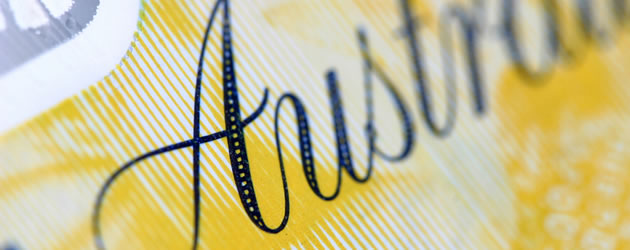A number of factors contributed to the Pound Sterling to Australian Dollar (GBP/AUD) exchange rate advancing to a fresh six-and-a-half year high on Thursday, hitting its best levels since 2008.
UK Wage Growth Climbs, BoE & Fed Interest Rate Hike Expectations Forecast to Drive Pound Sterling to Australian Dollar (GBP/AUD) Exchange Rate Higher
The Pound Sterling to Australian Dollar (GBP/AUD) exchange rate lost ground earlier this week as China published better-than-forecast GDP, Industrial Production and Retail Sales figures while gauges of Australian business confidence climbed.
However, developments in the UK, US and Eurozone have since seen the Pound Sterling to Australian Dollar (GBP/AUD) exchange rate surge to its strongest level since 2009.
The GBP/AUD currency pair achieved a high of 2.1244
Although yesterday’s UK employment figures disappointed in some areas, by showing the nation lost positions and recorded a higher jobless rate, the five-year high average earnings figure helped the Pound recoup any initial losses.
The British currency remained buoyed by comments issued earlier in the week from two high-profile Bank of England (BoE) officials – Governor Mark Carney and policymaker David Miles.
Carney implied that the UK’s low inflationary climate is largely the result of the situation in Europe, and that borrowing costs are likely to increase in the first quarter of next year.
But as Miles had a longstanding reputation as a dovish policymaker, his comments were more surprising. He stated; ‘Given that, and given that many of the after-effects of the mess of 2008 do seem to have faded, I think a first move up in Bank Rate soon is likely to be right. I do not attach great weight to the idea that starting this process will create great risks of dropping back into very weak growth, falling into negative inflation and engendering a splurge in risk-avoiding behaviour.’
Bets that the BoE is likely to increase interest rates at the same time as the Federal Reserve have kept the Pound trending in a broadly stronger position.
Meanwhile, hints from Federal Reserve Chairwoman Janet Yellen that a rate adjustment could still take place in 2015 have bolstered the US Dollar to the detriment of higher-risk currencies like the Australian Dollar.
As stated by one industry expert; ‘Not only did Yellen confirm that rates will rise this year, but it is her view that waiting too long would mean rates would have to rise at a faster pace later. She prefers to start earlier to allow for a more gradual rate path. As a result every FOMC meeting this year including September is a live meeting at which the central bank could raise rates.’
Australian Dollar to US Dollar (AUD/USD) and Australian Dollar to Pound Sterling (AUD/GBP) Exchange Rates Hold 6-Year Lows Despite Improving Inflation Expectations
The Australian Dollar to Pound Sterling (AUD/GBP) and Australian Dollar to US Dollar (AUD/USD) exchange rates continued trending at their worst conversion rates for over six years even as a domestic report showed improving consumer inflation expectations.
The data showed that inflation expectations rose from 3.0% to 3.4%.
Strategist Prashant Newnaha noted; ‘We remain of the view that the RBA is comfortable with a terminal cash rate of 2%. However, as we expect weak data reports in the weeks and months ahead, the next move is more likely to be down than up, a factor that will be supportive of the RBA’s call for a lower AUD.’
However, Australia’s ANZ Consumer Confidence measure for July did plummet by -5.0% month-on-month, taking it down from 119.9 to 113.9.
Pound Sterling to Australian Dollar (GBP/AUD) Exchange Rate Forecast: RBA, BoE Meeting Minutes Predicted to Drive Movement Next Week, New Best Conversion Rate of 2015 Ahead?
With no notable economic reports due out for either the UK or Australia before the weekend, global economic developments (like the situation in Greece) are likely to be the main cause of GBP/AUD fluctuations.
But will the Pound Sterling to Australian Dollar (GBP/AUD) exchange rate advanced to new multi-year highs next week?
Well, the direction taken by the pairing is extremely likely to be dictated by the publication of minutes from both the Reserve Bank of Australia (RBA) and Bank of England (BoE) policy meetings.
Dovish remarks from the RBA would be Australian Dollar-negative while hawkish remarks from the BoE, or a split vote on the timeline for increasing borrowing costs, could drive the Pound higher.
The Pound Sterling to Australian Dollar (GBP/AUD) exchange rate was trending in the region of 2.1160, the Australian Dollar to Pound Sterling exchange rate was trending in the region of 0.4733, the Australian Dollar to US Dollar (AUD/USD) exchange rate was trending in the region of 0.7397 and the US Dollar to Australian Dollar (USD/AUD) exchange rate was trending in the region of 1.3517



